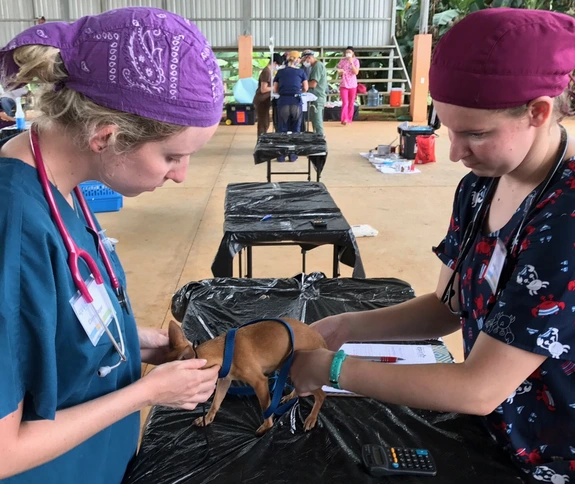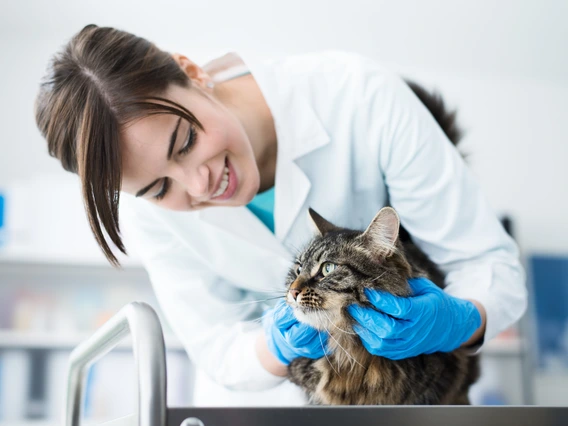
B.S. in Veterinary Science
Protect animal and human health with a veterinary science major that makes you a competitive applicant for DVM, Ph.D., P.A., and M.S. graduate degree programs.
The Bachelor of Science degree in Veterinary Science prepares you to pursue an advanced degree in veterinary medicine or work in foundational veterinary and comparative biomedical sciences. This program emphasizes animal behavior and animal welfare, equipping you with the knowledge and skills to improve the well-being and health of animals through scientific research and clinical practice.
Why Major in Veterinary Science?
You understand the relationships between animals and humans and want to make a difference in the lives of both. You'll experience the full scope of veterinary science from research to medical care, to understanding human and animal interdependencies, to educating the public about caring for all species of animals.
Students interested in becoming a licensed veterinarian will need to apply to Doctor of Veterinary Medicine (DVM) programs after completing their bachelor's degree. You will not be automatically enrolled in the University of Arizona DVM degree after completing the B.S. in Veterinary Science.
A veterinary science degree will prepare you to work in careers in the fields of veterinary care, public health, scientific research, and education and advocacy. Moreover, a veterinary science degree can serve as a springboard into graduate, medical, veterinary or pharmacy school.
Beyond graduate school, there are a variety of career options available to students who complete a bachelor of veterinary science, including:
- Inspector: Work for the state or federal government to ensure a range of professionals and agencies are in compliance with sanitation standards and implement systems that prevent toxins and infectious agents from entering the food supply.
- Researcher or research assistant: Work in the public or private sectors to advance insight, medicines, and technologies related to emerging diseases, environmental health, food safety, population health, and bioterrorism.
- Education and advocacy: Advise legislators and other decision-makers about best practices and issues related to veterinary regulations and policies. Job opportunities exist in public and private sectors.
- Nonprofit executive director: Lead organizations dedicated to the research and education of critical issues related to animal, food, and public health within the context of agriculture and companion animals.
As a veterinary science student at the University of Arizona, you'll explore human-animal relationships; animal reproduction, anatomy, and physiology; the care of animal population; microbiology; disease ecology; and pathology. Courses required to complete a bachelor of veterinary science are subject to change, so remember to meet with your advisor regularly to review your course plan.
Veterinary Science students will learn the foundation of animal health and care in courses like:
- Immunology
- Animal Genetics
- Animal Anatomy and Physiology
- Cat and Dog Behavior
- Companion Animal Behavior
Veterinary Science Emphases
Choose from two program emphasis areas to build a veterinary science degree that fits your interests and goals.



